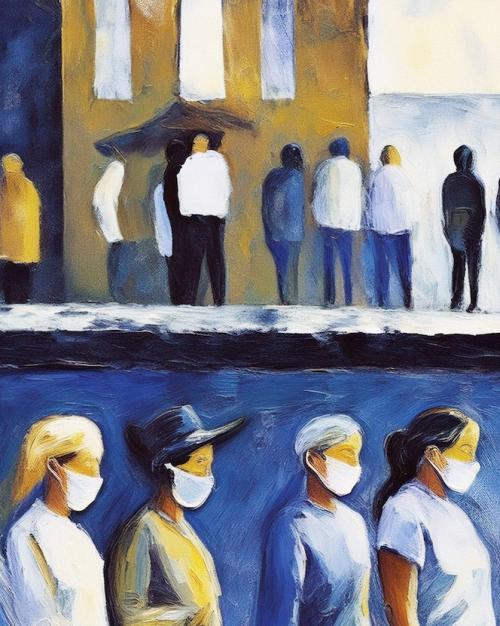The Covid-19 pandemic radically changed perceptions of illness, health, science and ethics, while reconfiguring relationships between doctors and patients, institutions and subjects, among neighbors and communities, and in politics and governance. A three-day conference, “The Biopolitics of Global Health After Covid-19,” will combine biopolitical and anthropological inquiry to spark a cross-disciplinary dialogue about (post-) pandemic discourses and practices of global health. The conference events, May 5-7, are free and open to all.
“Our starting point is that biopolitical thought – although crucial in understanding the dynamics of the Covid-19 pandemic – remains overly walled off from practice,” said conference organizer Timothy Campbell, professor of Romance studies in the College of Arts and Sciences. “It is time, we propose, to blur the disciplinary boundaries and renew the relationship between philosopher and ethnographer. In so doing, we aim to challenge and renew a perspective on global health in a post-pandemic world based more on inclusion than exclusion.”
Part of a New Frontier Grant project supported by the College of Arts and Sciences, the conference will explore a range of pandemic responses, lived experiences and afterlives and will include two keynotes, a roundtable discussion and paper presentations.
The first keynote will be delivered by Judith Cutchin, the first vice president of the New York State Nurses Association on May 5 at 4:30 p.m. in Klarman Hall KG70. Cutchin has been a nurse for over 30 years and has served on the New York State Nurses Association board since 2018.
Her keynote, titled “COVID-19: A Look Back at the First Five Years from the Frontlines,” will reflect on the major lessons learned on the frontlines from a workers’ rights and public health perspective, including proper infection control, just workers compensation and sick leave policies, hospital preparedness, long-term health impacts and public health infrastructure.
The second keynote will be given by Elizabeth Povinelli, an anthropologist and gender studies scholar, on May 7 at 4:30 p.m. in Klarman Hall KG70. Povinelli, the Franz Boas Professor of Anthropology and Gender Studies at Columbia University, focuses on developing a critical theory of late liberalism, particularly examining governance and sociality within settler colonial contexts.
Her keynote, titled “Can There Be a Concept of Health Beyond Bios?” will examine how legal and critical discussions shape our understanding of health and well-being, not just for humans but also for broader ecological and environmental systems. Povinelli explores these discussions through her concept of ‘geontopower’—the way societies govern the boundary between life and non-life in the context of climate change, natural resource extraction and Indigenous struggles.
A roundtable, “Perspectives on One Health,” will reflect on the relations between humans, animals and the environment as an essential component in understanding the Covid-19 pandemic. Held May 7 at 10 a.m.in the ILR Conference Centre room 423, the roundtable will explore these interrelations through the One Health paradigm, examining the complexities of virus emergence, pathogen transmission, and health governance.
Participants include Raina Plowright, the Rudolf J. and Katharine L. Steffen Professor of Veterinary Medicine in the College of Veterinary Medicine (CVM); Alex Nading, associate professor of anthropology in the College of Arts and Sciences (A&S); Juno Salazar Parreñas, associate professor of science and technology studies (A&S); and Alexander J. Travis, director of Cornell Public Health and chair of the Department of Public & Ecosystem Health (CVM).
The roundtable will reflect on the challenges of implementing One Health across local, regional, and global scales, and the role of social science perspectives in thinking about One Health approaches, particularly in the context of pandemic preparedness and response.
On May 5 – 6, philosophers and anthropologists from around the world will present papers related to the Covid-19 pandemic and its aftermath. For a list of presenters and more information, visit the conference website.
The conference is part of an A&S New Frontier Grant that brings together sociologists, philosophers and anthropologists from different parts of the world for a series of collaborative workshops, forging a new kind of intellectual and ethnographic work to analyze biopolitics through lived experience.
“Each of these workshops forms a laboratory for thought, reflection, and response to a globally uncertain post-pandemic world,” Campbell said.
“The Biopolitics of Global Health” conference is sponsored by the College of Arts and Sciences and co-sponsored by the Departments of Romance Studies and Anthropology.
Esca van Blarikom is a postdoctoral fellow in the Department of Romance Studies.




